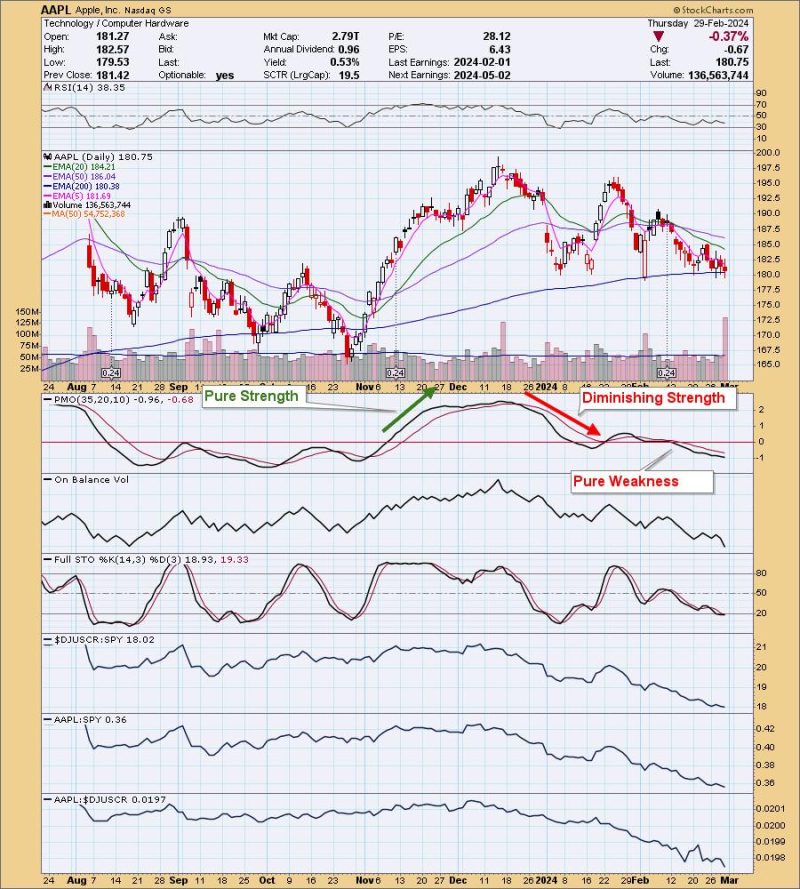Apple Inc. (AAPL) and Alphabet Inc’s Google (GOOGL), two of the biggest names in the global technology business, have been recently demonstrating a faltering momentum in their respective market performances. This break in their customary bullish trends invites questions about the potential factors driving this seeming pure weakness.
In Apple’s case, the tech giant known for its dominant position in the global smartphone market has seen some fragility in its share price. Following the announcement of iPhone 13’s launch, market analysts projected a rise similar to what has been experienced in previous years following such announcements. However, contrary to the projection, the company’s shares experienced a downturn. Notably, in 2020, Apple’s stocks rose by nearly 3% two weeks after the iPhone 12 launch. However, they slowed down by 2% after two weeks of iPhone 13’s announcement.
One reasoned explanation for this phenomenon can be attributed to the increasingly competitive smartphone market where players like Samsung and Xiaomi are forcing highly aggressive price and innovation wars. Another contributing factor relates to chip shortage which has hit the tech industry like a storm. This has particularly affected Apple’s production and timely delivery of products, resulting in reduced trust among investors.
Similarly, the landscape is not so different for Google’s parent company, Alphabet Inc. Google’s growth had been steady with continuous acceleration over the past decade. The prime driver has been the escalation of its core online advertising business, supplemented by the growth of its cloud computing division, Google Cloud.
However, the past few months have witnessed a slowdown in Google’s stock performance. It recorded an approximately 1% decrease in its stock price in the last month. The tech giant has been also battling increasing regulatory scrutiny both in the United States and Europe. The European Union has hammered the tech giant with heavy fines in antitrust cases while the United States Department of Justice also filed an antitrust lawsuit against Google. These investigations have indeed led to investor insecurity and, therefore, bearish stock performance.
Another potential trigger to Google’s stock price decline is the growing competition in the digital advertisement sector. Competing digital platforms, like Facebook and Amazon, are increasingly gaining more share of the advertising pie, putting meaningful pressure on Google’s core advertising business.
Though Apple and Google are experiencing some momentary market woes, it is crucial to note that these companies have unparalleled reach and influence and a long history of bouncing back from similar situations. Thus, the latest downturns can also be interpreted as reflections of shifting market dynamics rather than indicative of irreversible corporate problems.
Regardless of their recent stock weakness, both Apple and Google remain formidable entities in the tech industry, standing firmly on their respective strong fundamentals. Their robust portfolio of products and services, coupled with a solid growth strategy, makes them exciting to watch as they continue to shape the world of technology.
One thing is certain, however. Whether the current stock market fluctuations are signals of something more systemic or merely short-term disruptions, they do reveal a necessary aspect of market activity. While the giants like Apple and Google are by no means invincible, their sheer size and influence render them adequately resilient to push through these challenges, find solutions, and continue their industry dominance.
